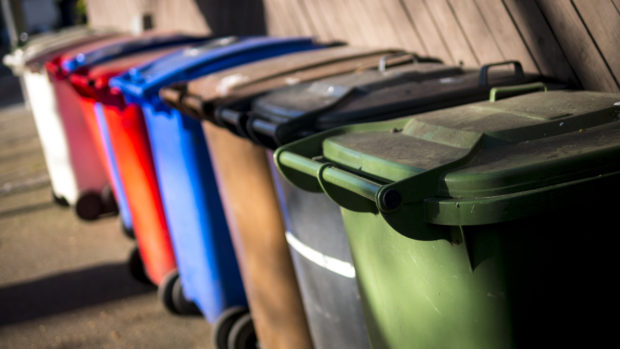When it comes to putting the bins out, I find it difficult to remember what week I am in.
Usually I rely on our neighbours to be better organised, and take the lead from them. I see what bins they put out, and then general waste or recycling, I follow suit.
In my home I carefully sort and recycle what I can. When a bottle or packaging is empty I will look to see if it can be recycled. Often this requires me to first find my glasses, so that I can read the tiny label on the back. If after a careful squint I see that it can be, I will wash the item carefully and place it in the indoor recycling bin. When this is full, the items are carried to the outside recycling bin, the one that I leave out for council collection. You see, I am committed to this because I have been well informed as to why this is important.
Like many, many others, I have watched the TV coverage of what is happening to our rivers and oceans. I know about the increasing pollution of our waters by plastic, and the huge impact that this is having on ocean wildlife. I have seen the film of birds choking, and know that the fish in our food chain carry micro-fibres that can kill then, or end up on our plates.
I understand that I have contributed to this though many years of carelessly throwing away plastic items, and I am very, very sorry. I could not be more sorry in fact. As a consequence I am trying to change my ways. Careful recycling has been a good place to begin.
The other day I spent some time carefully washing out a particularly odd shaped bottle. I left it to dry and then popped it into the recycling bin. Feeling pleased with myself I then went out shopping, popping into a large chemist store to purchase some medication. As I crossed the threshold of the store I stopped. There in front of me, in every direction, was shelf after shelf of items bottled or wrapped in plastic. What difference would one washed and recycled bottle make given that there were thousands upon thousands of bottles before me? Really, what difference could my small efforts make to this sea of plastic?
This is about numbers. The reason that there is such a high level of plastic pollution in the world is that there are millions and millions of people like me. Even if we were all able to recycle more, the truth is that it is in part our very numbers that make pollution so significant. I think this when I see hundreds of cars in a car park, thousands of people making their way through airports, bins in the street full of single use items used in fast food restaurants. There are lots of us.
So when I stop to think about it I wonder if I carry too much of a sense of responsibility for what is going on. Clearly I need to try harder, and use less plastic, especially that which is single use. But a much more radical approach to our problems is needed than this. I need real alternatives to the way that I live, alternatives that in so many areas of life are just not readily available right now.
It seems to me that industries that have changed the habits of our lives – how we travel, how we shop, how we eat and drink – really do need to be taking the lead and offering alternatives to us. There is no way that I alone, or even in community with others, can bring about such a change. What is needed is a massive change of direction, a significant change of will, so that we are all helped to find new habits in consuming material goods that have significantly less impact on the planet.
Yesterday was Ash Wednesday, for Christians the beginning of Lent. Each year we are encouraged to fast through the period from Ash Wednesday to Easter Sunday. This year I am encouraging those in my churches to ‘say yes to less’. I want us all to find ways of consuming less, especially of those things that have a negative impact on the planet. If we could buy less, waste less, throw less away, then everyone would benefit, not least those who are currently most impacted by the pollution we cause.
Together with those in my churches I will be praying that God helps us to establish new patterns of behaviour that are much more light touch on our environment. But we need others to help us as well – so come on big industries, seriously think about the changes that you should be making to help us all chan
The Rt Rev Anne Dyer is Episcopalian Bishop of Aberdeen and Orkney and Scotland’s first female bishop

